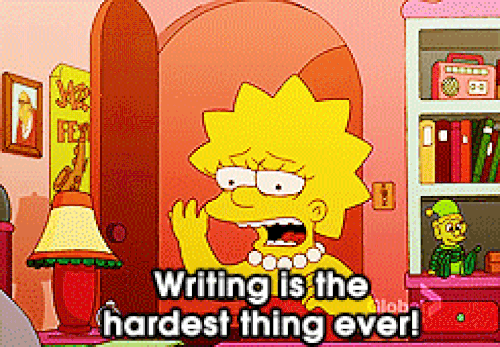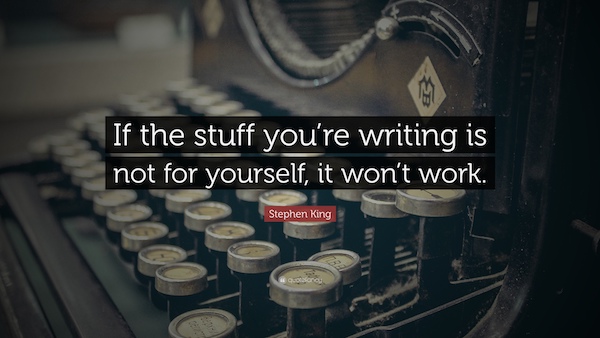Writing is incredibly rewarding, but it can also be extremely challenging. Every artist is unique and every writer has their reasons for wanting to write, yet there are some pieces of advice that hold true for all creative spirits. Whenever you find yourself at a low point, reminding yourself of this advice may be the motivation you need to get back to writing!
So for those of you who so nobly chose to be writers, here are three pieces of advice you should never forget. Enjoy, and stay motivated!
1) Writing isn’t always easy, but you should do it anyway.
I hate writing. I love having written. –
Dorothy Parker/ every writer ever
I’ve said it before and I’ll say it again: writing is the hardest thing ever! Not always, but enough of the time to disillusion the most resilient of idealists.
Writing has its ups and downs. Sometimes inspiration strikes and you stay up until 3 a.m. finishing your latest chapter. Other times you get stuck or work for days straight only to have to throw all those pages out by the final draft. It’s enough to drive anyone crazy!

And yet you keep writing anyway. Why? Because deep down you know that even at its worst, writing is worth doing. It’s liberating. It exercises your imagination. It’s one of the greatest ways to express yourself. And you just love it. As much as you hate it sometimes, you love it. And if you can turn that passion into something beautiful? Well, congratulations: you’re a true writer!
Why do you write? Only you can answer that question for yourself. But whatever the reason you became a writer, it matters. So make it count.
2) The first audience you should ever try to please is yourself.
Better to write for yourself and have no public, than to write for the public and have no self. – Cyril Connolly
This may seem obvious, but at some point in the writing process, many writers fall into the trap of people-pleasing. Will my friends and family like this? Will my editor like this? Will my target audience like this? What if nobody likes it? Maybe I should change it.
Yes, writing with an audience in mind is important: we want readers to love our work so we can sell more books and be successful. The trick is finding the overlap between what people want to read and what you want to write.

Maybe you want to capitalize on the latest trends in fiction or adjust your style to appeal to a wider audience. But if you try to write an edgy dystopian sci-fi novel when you only like writing Christian historical romance, the quality of your work will suffer. Readers can tell when your heart isn’t in it.
Whenever you sit down to write something new, make sure it’s a story you want to tell. Otherwise you’ll end up with a book that you didn’t want to write and that no one wants to read—nobody wins. Write for yourself first, worry about everyone else later.
3) It doesn’t matter if it’s been done before; if it’s never been done by you, go for it!
There is no one alive who is Youer than You. – Dr. Seuss, Happy Birthday to You!
Human beings are funny creatures. We encourage individuality and freedom of expression, yet we do everything in our power to fit in with everyone else just so we can be accepted by our peers.
As much as art thrives on individuality, writers suffer from this conflict too. We want to stand out, but we can’t be too different or no one will read our books. As a result, many of us find ourselves caught in the dilemma of wanting to tell a story but worrying that “it’s been done before.”

But here’s the truth: it’s not so much about the story you tell as it is about how you tell it.
Think about it: if Shakespeare already wrote the quintessential story of forbidden love with Romeo & Juliet, then how did West Side Story win so many awards? If anyone can just read a history book or a Wikipedia article, then why is it virtually impossible to get tickets to see Hamilton? Why do people continue to write novels and make movies when every work of fiction can be boiled down to one of seven basic plots?
Simple: the story may be the same at its core, but the way it’s told makes it different and interesting. In other words, it’s your voice that will make your story unique.

The fact is that every story told since the Age of Antiquity has already been done. What matters is that it’s never been done by you. No one else has your voice, so don’t be afraid to let the world hear it.
What advice about writing do you find most helpful? What other pieces of advice would you add to this list?


Trackbacks/Pingbacks